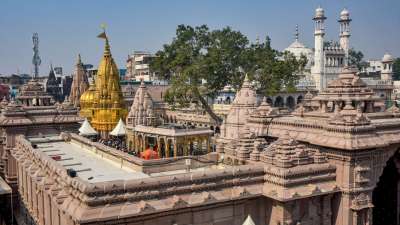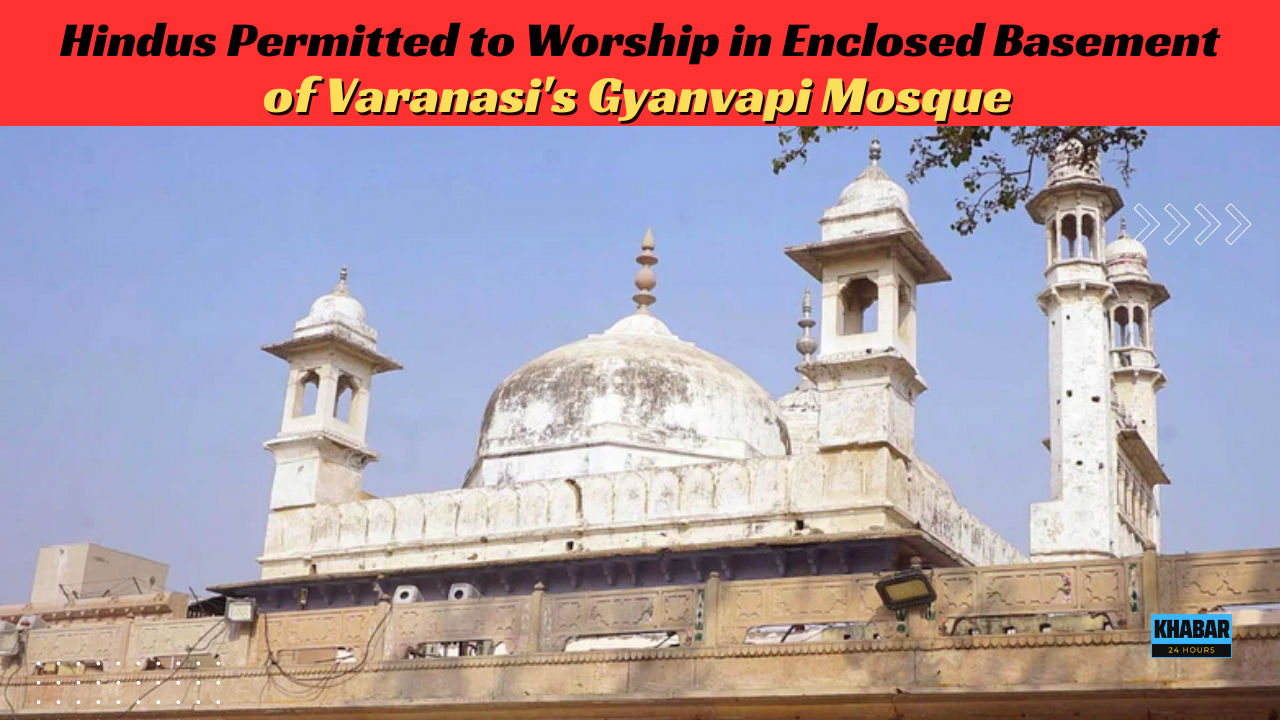Dive into the latest developments in the Gyanvapi mosque controversy, including court rulings and petitions, shedding light on the pre-Independence dispute and its legal ramifications.
A recent court ruling in Varanasi permits Hindu petitioners to worship within the previously sealed basement area, known as ‘Vyas ka tekhana’, of the Gyanvapi mosque complex. The judge’s decision mandates the removal of barricades and ensures that arrangements are made within a week for prayers to be conducted by priests from the Kashi Vishwanath Temple. Vishnu Shankar Jain, representing the four Hindu women petitioners, emphasized that this ruling grants Hindus the right to offer prayers, with the district administration tasked with facilitating arrangements within the stipulated timeframe. It is anticipated that the mosque committee will contest this order in a higher court.
The Gyanvapi mosque basement comprises four cellars, one of which remains occupied by a priestly family claiming hereditary rights to perform rituals there. The family, led by priest Somnath Vyas, ceased their prayers in 1993 when access to the cellar was closed off. Allegations surfaced earlier, suggesting the discovery of Hindu deity statues’ debris during a site survey. Additionally, it was claimed that components of a previous structure, identified as a temple in an ASI report, were utilized in constructing the mosque.

In a recent development, a court order was issued a day following a plea by four Hindu women to the Supreme Court, advocating for an excavation and scientific assessment of a ‘shivling’ purportedly located within the sealed ‘wazukhana’ area of the mosque complex.
In 2022, a Supreme Court directive led to the sealing of this area, which the Hindu side now seeks to reopen for an ASI survey, ensuring the preservation of the ‘shivling’. Last month, the Allahabad High Court delivered a significant verdict dismissing all petitions filed by the mosque committee contesting civil suits aimed at reinstating the temple on the premises. This legal saga revolves around the Gyanvapi mosque, situated adjacent to the renowned Kashi Vishwanath Temple. The High Court deliberated on and dismissed various petitions, including those from the Uttar Pradesh Sunni Central Waqf Board, challenging the validity of a 1991 case before a Varanasi court.

In 1991, a lawsuit was initiated on behalf of the Adi Vishveswar Virajman deity, aiming to secure authority over the contested property. The Anjuman Intezamia Masajid Committee and the Waqf board contested this, arguing that the suit was not permissible under a law prohibiting alterations to the religious character of places as they stood on Independence Day, August 15, 1947.
The petitioners contended that since the dispute predates Independence, it would remain unaffected by the legal restrictions imposed post-Independence.
In 2022, a Supreme Court directive led to the sealing of a disputed area within the Gyanvapi mosque premises. Now, the Hindu side seeks to reopen it for an ASI survey, preserving a sacred ‘shivling.’ Last month, the Allahabad High Court made waves by dismissing all petitions filed by the mosque committee, challenging civil suits aimed at restoring a temple on the site, adjacent to the iconic Kashi Vishwanath Temple. The legal saga hinges on a 1991 lawsuit representing the Adi Vishveswar Virajman deity’s claim to the property. However, the Anjuman Intezamia Masajid Committee and the Waqf board contested this, citing legal restrictions post-Independence. They argued that the dispute’s pre-Independence nature exempts it from these constraints. Explore the intricate legal battle surrounding this historic dispute and its implications.

